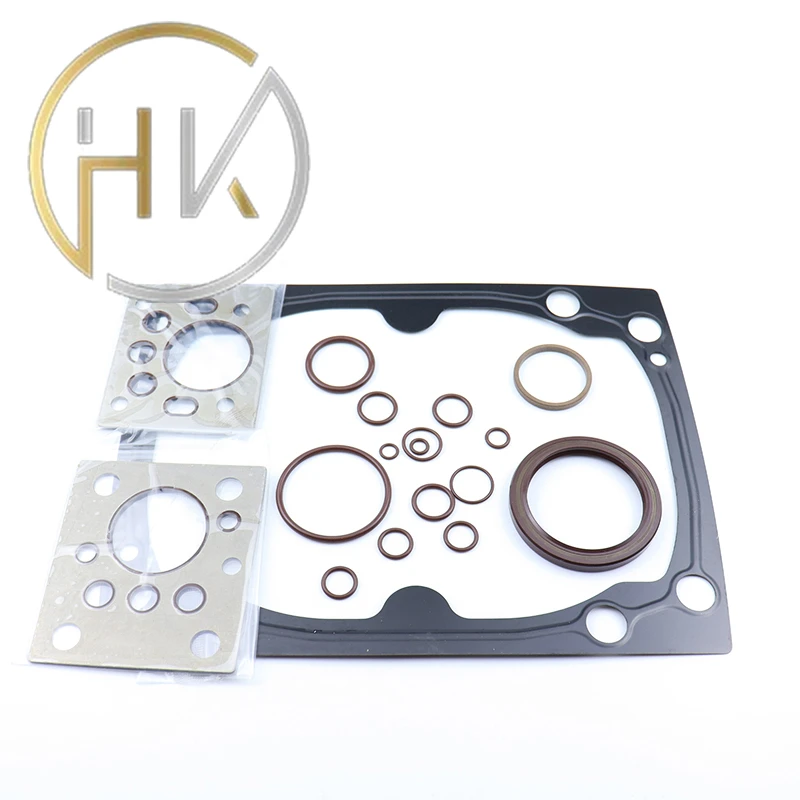Nov . 12, 2024 08:19 Back to list
oil seal for motor
Understanding Oil Seals for Motors An Essential Component
Oil seals, also known as grease seals or rotary shaft seals, play a crucial role in the functioning and longevity of motors. These small yet significant components are designed to retain lubricants within the machinery while preventing contaminants from entering. Understanding the importance of oil seals and their role in motor operation can help in maintaining optimal performance and extending the life of your equipment.
What is an Oil Seal?
An oil seal is a mechanical component that seals the junction between rotating shafts and stationary parts. It typically consists of a rubber or polymer elastomeric lip that makes direct contact with a rotating shaft. This design allows the seal to maintain a tight fit, preventing the leakage of lubricants and minimizing the ingress of dirt, dust, and moisture.
Oil seals are manufactured in various shapes and sizes to accommodate different machinery types. They can be single-lip or double-lip, with the latter providing improved protection against contaminants. The materials used for oil seals are chosen based on factors such as temperature, pressure, and the chemical nature of the lubricants and contaminants they will encounter.
Importance of Oil Seals in Motors
1. Preventing Lubricant Leakage One of the primary functions of oil seals in motors is to contain the lubricant, whether it's oil or grease. Motor lubrication is essential for reducing friction between moving parts, minimizing wear and tear, and ensuring smooth operation. A well-functioning oil seal prevents unnecessary lubricant loss, which can lead to overheating and potential motor failure.
2. Protecting Against Contaminants Ingress of dirt, water, and other foreign particles can severely damage motor components. Oil seals act as barriers, preventing these contaminants from compromising the integrity of the lubrication system. By keeping the lubricants clean, oil seals contribute to the overall efficiency and durability of the motor.
3. Reducing Noise and Vibration A properly sealed motor operates more quietly and exhibits less vibration. Oil seals help maintain the alignment of rotating components, which minimizes the chances of unwanted noise and vibrations. This not only enhances performance but also improves the operator's experience.
4. Extending Equipment Life By preventing lubricant leakage and contamination, oil seals significantly extend the life of motors and their components. Maintaining consistent lubrication helps to reduce the frequency of repairs and the need for component replacements, ultimately leading to lower operational costs.
oil seal for motor

Choosing the Right Oil Seal
Selecting the appropriate oil seal for a motor involves several considerations
- Material Compatibility The oil seal material should be compatible with the lubricant being used, as well as the operating environment. For example, silicone seals are often chosen for high-temperature applications, while nitrile is preferred for oil compatibility.
- Size and Fit It is crucial to select an oil seal that matches the shaft diameter and housing dimensions to ensure a proper seal. An ill-fitted oil seal can lead to premature wear and leakage.
- Operating Conditions Consider the temperature, pressure, and potential exposure to chemicals when choosing an oil seal. Different applications may require specialized seals designed to withstand harsh conditions.
Maintenance and Replacement
Regular maintenance is essential for motors equipped with oil seals. It includes periodic inspections to identify wear or damage to the seals. Signs of wear could include oil leakage around the shaft or visible cracks and deformities in the seal material.
If an oil seal needs to be replaced, it's vital to ensure that the new seal is installed correctly. Misalignment during installation can lead to failure, compromising the seal's effectiveness. Following manufacturer guidelines and best practices can facilitate a successful replacement and prolong the life of the motor.
Conclusion
Oil seals are indispensable for the reliable operation of motors. Their ability to contain lubricants and protect against contaminants ensures smooth performance and increased lifespan for the equipment. Understanding the function, selection criteria, and maintenance of oil seals is crucial for anyone involved in the operation or maintenance of motors. By prioritizing the integrity of these small components, you can achieve greater efficiency and reliability in your machinery, ultimately leading to enhanced productivity and reduced downtime.
-
TCN Oil Seal Metal Ring Reinforcement for Heavy Machinery
NewsJul.25,2025
-
Rotary Lip Seal Spring-Loaded Design for High-Speed Applications
NewsJul.25,2025
-
Hydraulic Cylinder Seals Polyurethane Material for High-Impact Jobs
NewsJul.25,2025
-
High Pressure Oil Seal Polyurethane Coating Wear Resistance
NewsJul.25,2025
-
Dust Proof Seal Double Lip Design for Construction Equipment
NewsJul.25,2025
-
Hub Seal Polyurethane Wear Resistance in Agricultural Vehicles
NewsJul.25,2025
-
The Trans-formative Journey of Wheel Hub Oil Seals
NewsJun.06,2025
Products categories
















